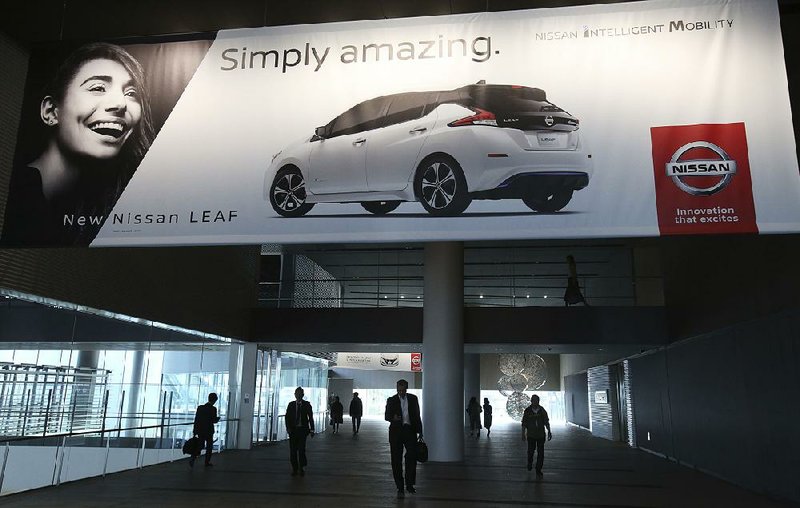Nissan Motor has become the latest Japanese automaker to admit to falsifying product-quality data, dealing a further blow to corporate Japan's reputation for dependable quality.
An internal review of emissions and fuel economy tests at Nissan's production plants in Japan showed that company inspectors used "altered measurement values" on emissions inspection reports, the company said in a statement Monday. The tests also "deviated from the prescribed testing environment," it said.
The review found that all models complied with Japanese safety and emissions standards, it said. The exception was the Nissan GT-R, a two-door sports car, which the company produces too few of to comprehensively review its record, said Nick Maxfield, a Nissan spokesman, in an email. The company said the falsification problems ultimately did not affect fuel-economy findings.
Nissan said that it had already started investigating the falsifications and that it had retained a Japanese law firm, Nishimura & Asahi, to lead the effort. The investigation is likely to take a month, Maxfield said.
"Nissan understands and regrets the concern and inconvenience caused to stakeholders," the company said in a statement.
The disclosure is the latest blow for Nissan, one of Japan's three biggest automakers and a symbol of the country's ability to turn out quality products at mass-market prices. In October, the automaker brought its Japanese factories to a halt and began recalling 1.2 million vehicles after it discovered that vehicle inspections had been carried out by uncertified technicians.
Mitsubishi Motors and Suzuki Motor said two years ago that they had used improper methods on tests that exaggerated the fuel economy of their vehicles. Like Nissan, Subaru said in October that its employees had improperly conducted vehicle inspections.
More broadly, a number of Japanese factory owners have been rocked in recent years by safety and quality issues. Takata, the maker of air bags, has been blamed for a dozen passenger deaths, leading to the largest auto recall in history. Last year, it filed for bankruptcy protection in the United States and Japan.
Kobe Steel, a major Japanese manufacturer, said in November that its employees had falsified quality data for years, and other companies scrambled to assess the possibility of their own inspection problems.
It's not just Japanese companies. In San Francisco, a U.S. appeals court on Monday approved a $10 billion settlement between Volkswagen and car owners caught up in the German automaker's emissions cheating scandal.
The deal delivered "tangible, substantial benefits," and the federal judge who approved it did more than enough to ensure it was fair, a three-judge panel of the 9th U.S. Circuit Court of Appeals ruled unanimously. Volkswagen agreed to spend up to $10 billion compensating owners of roughly 475,000 Volkswagens and Audi vehicles with 2-liter diesel engines -- the bulk of the vehicles caught up in the scandal.
Volkswagen acknowledged that the cars were programmed to cheat on emissions tests. Under the terms of the deal, the automaker agreed to either buy back the cars or fix them and to pay each owner thousands of dollars in additional compensation.
U.S. District Judge Charles Breyer in San Francisco approved that deal in 2016 as part of a $15 billion settlement that also included $2.7 billion for unspecified environmental mitigation and an additional $2 billion to promote zero-emissions vehicles.
The 9th Circuit ruling Monday considered several objections, including returning to Volkswagen any of the $10 billion that is not paid out.
About 90 percent of affected vehicles have already been removed from the road or modified, Elizabeth Cabraser, lead attorney for Volkswagen owners and leaseholders, said in a statement Monday.
Information for this article was contributed by Carlos Tejada of The New York Times; and by staff members of Bloomberg News.
Business on 07/10/2018
